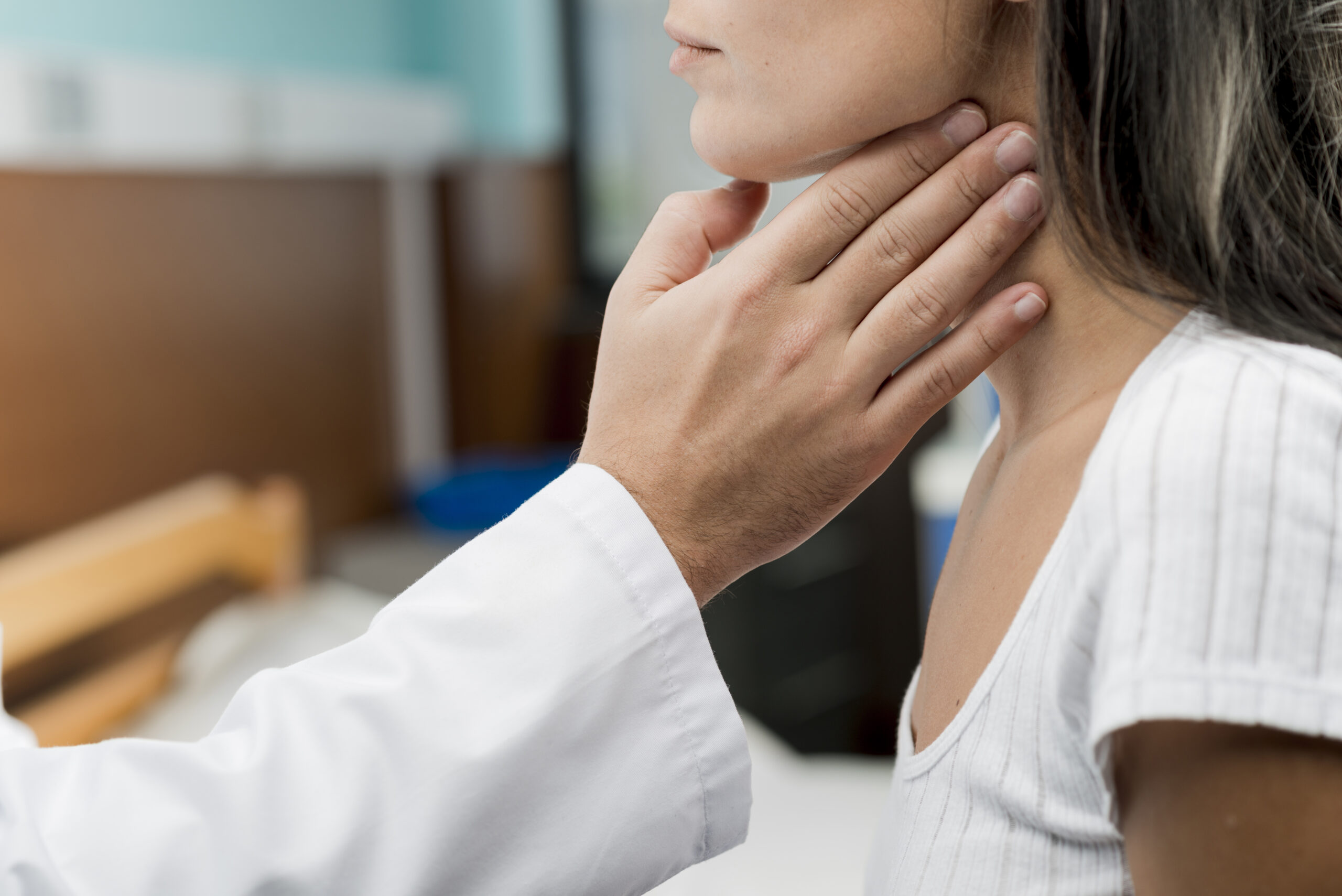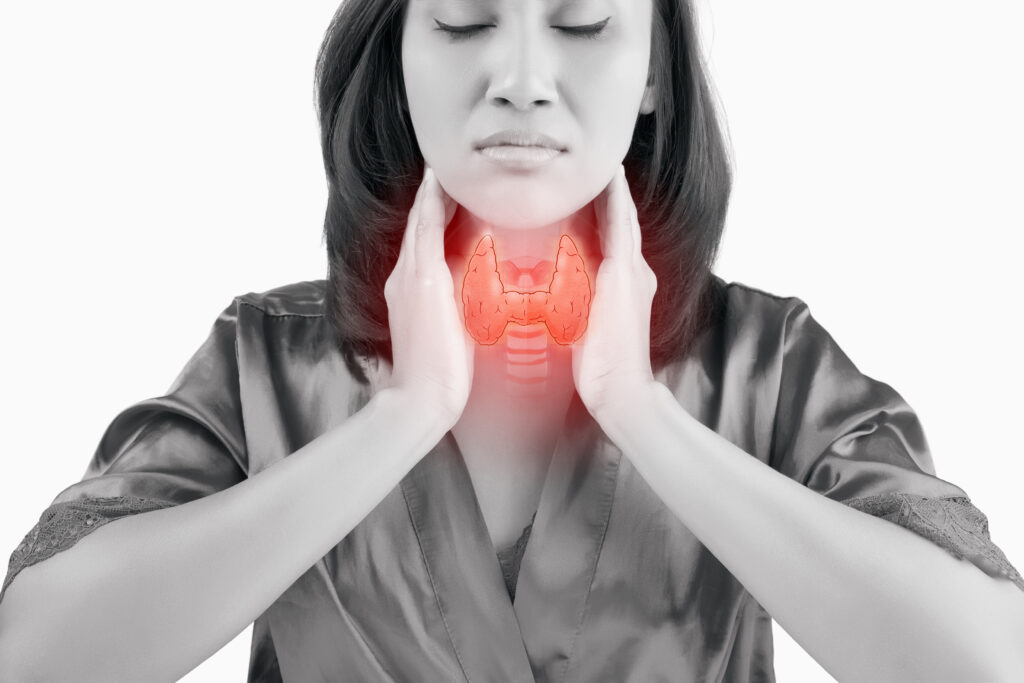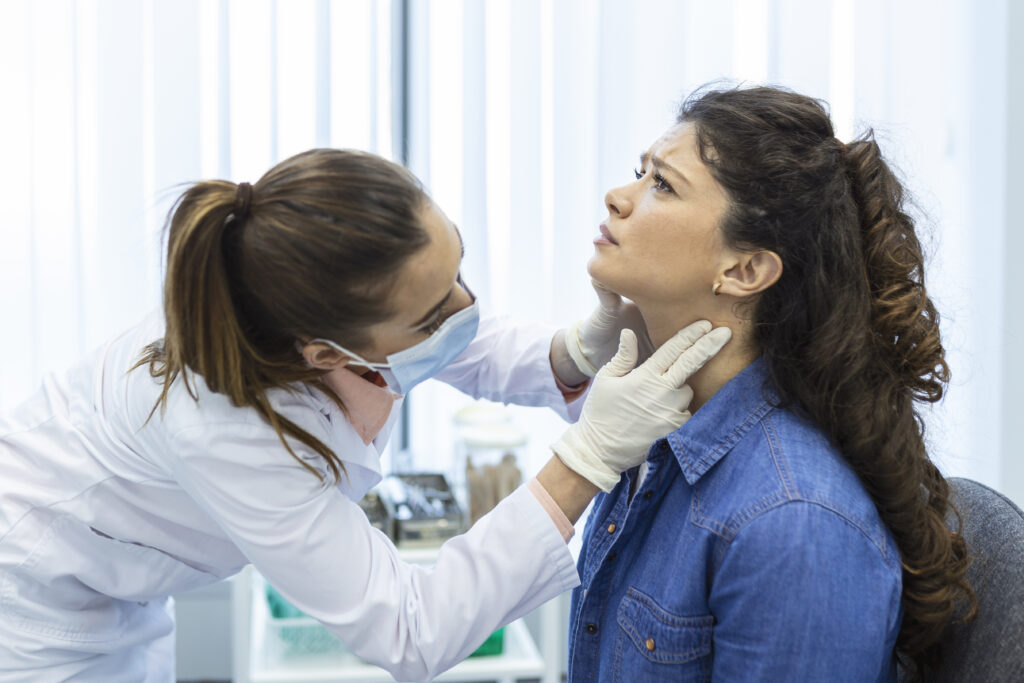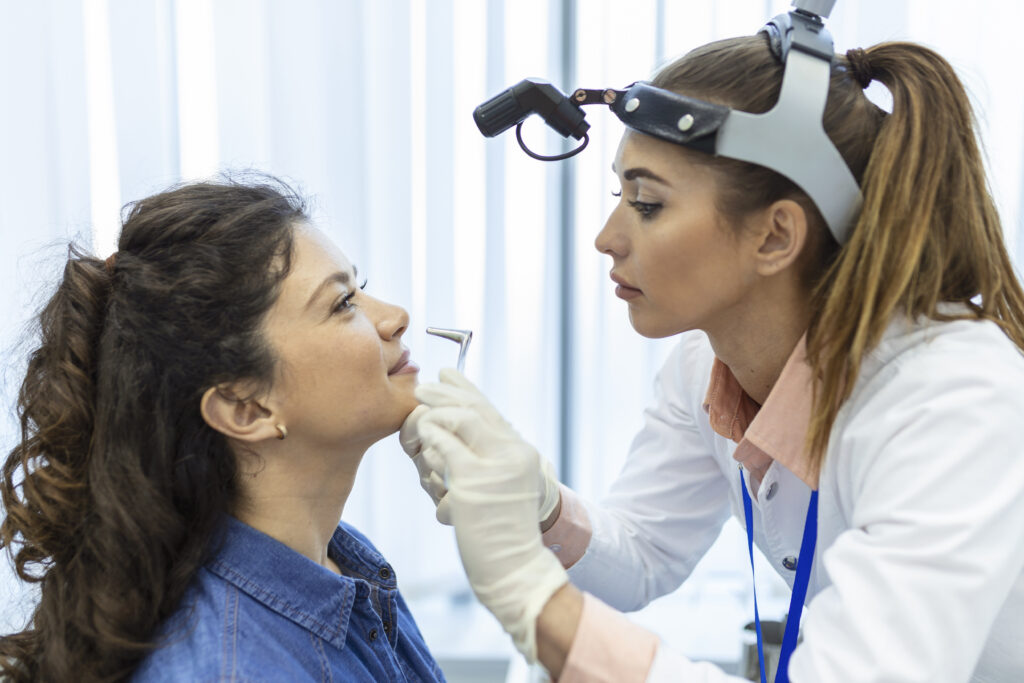How to Treat Hypothyroidism or Thyroid?

Hypothyroidism is the most common Thyroid disorder in India. It is an endocrine disorder that
occurs as a result of an underactive thyroid. The gland fails to produce enough thyroid hormones
per the body’s requirements leading to raised Thyroid stimulating hormone (TSH).
PATHOPHYSIOLOGY OF THYROID
The Thyroid is an endocrine gland that secretes 3 main hormones:
- Triiodothyronine or T3
- Thyroxine or T4
- Calcitonin
T3 & T4 are the main Thyroid hormones and calcitonin deals with calcium metabolism.
Production of T3 & T4 – Thyroid glands combines iodine with tyrosine amino acid thus producing
thyroid hormones that regulate the metabolism.
Production of TSH – produced by the Pituitary gland as per requirement, i.e. when T3 & T4 levels go
down the pituitary gets a signal to release TSH, which increases the levels of T3 & T4.

PREVALENCE
Prevalence of self-reported Thyroid disorders as per National Family Health Survey 5 (NFHS V) 2019-
21 was 2.9%.
The male: female ratio is approximately 1:6. It also stated that prevalence increased with age in
women, i.e.
15-19 years – 0.7%
20-34 years – 1.8%
35-49 years – 3.4%
These statistics clearly state that women are more prone to thyroid disorders, especially hypothyroidism.
ETIOLOGY
There are various causes that lead to Hypothyroidism like
- Autoimmune – Hashimoto’s thyroiditis, Graves’ disease with TSH blocking antibodies,
- Atropic hypothyroidism.
- Iatrogenic – Thyroidectomy, Radioactive iodine ablation, Drugs, treatment for
- hyperthyroidism.
- Transient – Postpartum thyroiditis
- Iodine deficiency
- Stress – prolonged emotional disturbance
- Congenital
- Secondary Hypothyroidism – TSH deficiency
When we talk of India in particular, Iodine is one of the major causes of hypothyroidism. There is a lack
of iodine in the soil, especially in the mountain regions of India. Therefore, the government of India
introduced Iodised salt in 1983 to deal with this issue of iodine deficiency, and approximately 30
years later India has now completed its transition from Iodine deficiency to “Iodine replete” status as
per Press Information Bureau (PIB). But despite this step, 42.2% of Indian households consume
inadequately iodized salt (2013 study).

CLINICAL PICTURE
The thyroid might be a small gland in the neck, but the hormones it produces impact each and every cell
of the body as it plays a vital role in the metabolic activity of the body, therefore, affecting the
functioning of every system of the body be it digestive, reproductive, or any other.
Hypothyroidism can be chiefly classified into 2 types:
- Primary hypothyroidism – Here thyroid gland itself is faulty & unable to produce the right
amount of thyroid glands. - Secondary hypothyroidism – It occurs as a result of a problem at the level of the pituitary
gland resulting in failure to produce the required quantity of TSH, further leading to
decreased quantities of T3 & T4.
In the beginning, when the under activity of the thyroid is in its initial stages, the manifestations may
not be very clear which many times leads to the disease being undiagnosed, but as the disease
progresses, i.e. as the duration & severity increases the variety of sign and symptoms begin to manifest
like :
- Weakness & fatigue
- Weight gain & difficulty in shedding the weight
- Muscle pain
- Hair – falling, thinning & lusterless
- Skin – dry
- Face – puffy & swollen (periorbital)
- Myxoedema – non pitting oedema on feet
- Constipation
- Hoarseness of voice
- Menstrual irregularities
- Infertility
- Mood swings & irritability
- Depression
- Impaired memory
COMPLICATIONS OF HYPOTHYROIDISM
- Mental health issues – Slowness of mental activity and even depression as the
the severity of the disease increases. - Goiter
- Increased risk of heart disease – due to high levels of LDL (bad cholesterol)
- Infertility & repeated miscarriages.
MANAGEMENT OF HYPOTHYROIDISM
Treatment can be done in 2 ways :
a) Supplementing with inadequate hormones (allopathic method) – giving the patient
levothyroxine externally due to which in the long run body stops producing its own and
a lifetime of supplementation is required.
b) Making the body capable of producing the hormones in the necessary amounts and
maintaining the bodily equilibrium (homeopathic method)
c) Lifestyle management – this is needed with all types of treatments. Regular exercise to
maintain the weight & metabolism, eat the right kind of foods, adequate sleep and
meditation helps in fighting stress which in today’s world is a leading cause of all lifestyle
disorders.

HYPOTHYROIDISM TREATMENT WITH HOMEOPATHY
The conventional treatment believes in giving the patient a daily dose of thyroxine in its synthetic
form i.e. levothyroxine. But homeopathic treatment is not done on the basis of the disease rather
on the overall picture of the patient i.e. patient’s personality, chief complaint, personal and family
history, accompanying complaints, and any other peculiarity of the patient is kept in mind while
prescribing the medicine to the patient. The various medicines that are indicated in cases of
Hypothyroidism is:
- Thyroidinum
- Calcarea carbonicum
- Natrum muriaticum
- Sepia officinalis
- Graphites
- Kali carb
- Iodum
- Spongia
DIAGNOSIS
Post case taking & physical examination a physician can take the help of various lab investigations &
scans to reach the diagnosis of Hypothyroidism.
- Blood tests – Thyroid profile
Type of hypothyroidism – T3 & T4 – TSH
Primary hypothyroidism – Low – Elevated
Secondary Hypothyroidism – Low – Low
- Anti-TPO antibody – a useful marker to diagnose auto-immune thyroid disease or Hashimoto’s thyroiditis.
- USG of neck & thyroid – to detect nodes & other growths.
CONCLUSION
Maintaining a healthy lifestyle is the first step to prevent such disorders. Early diagnosis also helps to
manage the condition better as the sooner it is diagnosed the easier it becomes to regulate the
the activity of the underactive thyroid. In longstanding cases the thyroid when becomes dependent on
synthetic hormones stop producing their own, therefore, it is better to opt for a treatment that
helps in maintaining the activity of the underactive thyroid rather than making it dependent on
external sources.


